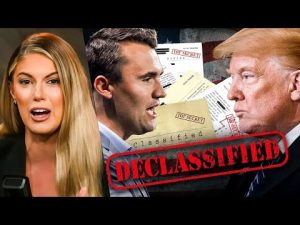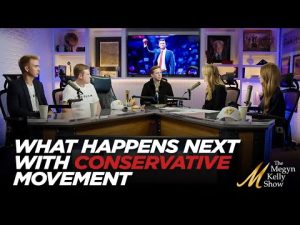In recent days, the chatter around Jimmy Kimmel’s departure from late-night television has intensified, giving conservatives quite the reason to celebrate. Kimmel has made a name for himself by pushing a distinctly liberal agenda, and many believe his brand of humor has gone from merely unfunny to downright offensive. The conversation surrounding his exit is not merely one of personal preference but raises a larger, essential question: how involved should the federal government be in regulating entertainment that veers towards propaganda? While Jimmy Kimmel may have overstayed his welcome, the implications of government intervention are much broader and potentially dangerous.
From a conservative standpoint, Kimmel’s comedy has often served as a vessel for divisive rhetoric, one that has muddied the waters of free speech with misinformation. Some might argue that his antics are simply a byproduct of creative freedom, yet the backlash against him testifies to a growing backlash against what some citizens view as inappropriate behavior. This is where the crux of the debate lies. The public backlash against Kimmel suggests that his comedy didn’t just miss the mark; it struck a nerve with audiences, prompting deeper questions about morality, values, and the purpose of comedy itself.
However, the narrative shifts dramatically when discussing the role of the federal government—specifically, the FCC—in shaping or curbing such public perceptions. If the government exerts control over platforms like ABC, threatening them for airing material deemed “informationally false,” it raises a red flag for many. Advocates for free speech warn that this could set a dangerous precedent, where the government becomes the arbiter of truth, and they caution against giving bureaucrats any more leeway to censor or dictate the content that reaches the airwaves. If today’s outrage leads to tomorrow’s federal censorship, it could spell disaster for free speech, a principle that conservatives hold dear.
Imagine a hypothetical scenario where the tables turn, and we find ourselves in a world where liberal comedians are sanctioned for their viewpoints. Wouldn’t many on the left decry this as an attack on artistic expression? Conservatives must take a stance against government overreach now before finding themselves with a double-edged sword. The notion of proactively silencing voices one disagrees with is not merely un-American; it’s fundamentally damaging to the marketplace of ideas. It’s an all-too-real slippery slope, and if we allow policies to be created in fear of retaliation, we may well end up creating a culture of silence, where only a few viewpoints are allowed to flourish while others wither away.
In the end, while Jimmy Kimmel’s departure may bring a chuckle or sigh of relief to some, the discussion must remain firmly rooted in the principles of free speech and public accountability. Yes, socially censure those who act poorly; let them face the consequences of their actions, but should we really allow Uncle Sam to dictate what we see or hear? Conservatives argue that maintaining a clear line between passionate public discourse and government intervention is vital to preserving the integrity of our values—a lesson we must not overlook. After all, the most vibrant cultures are created through free and open debate, not through heavy-handed censorship.







